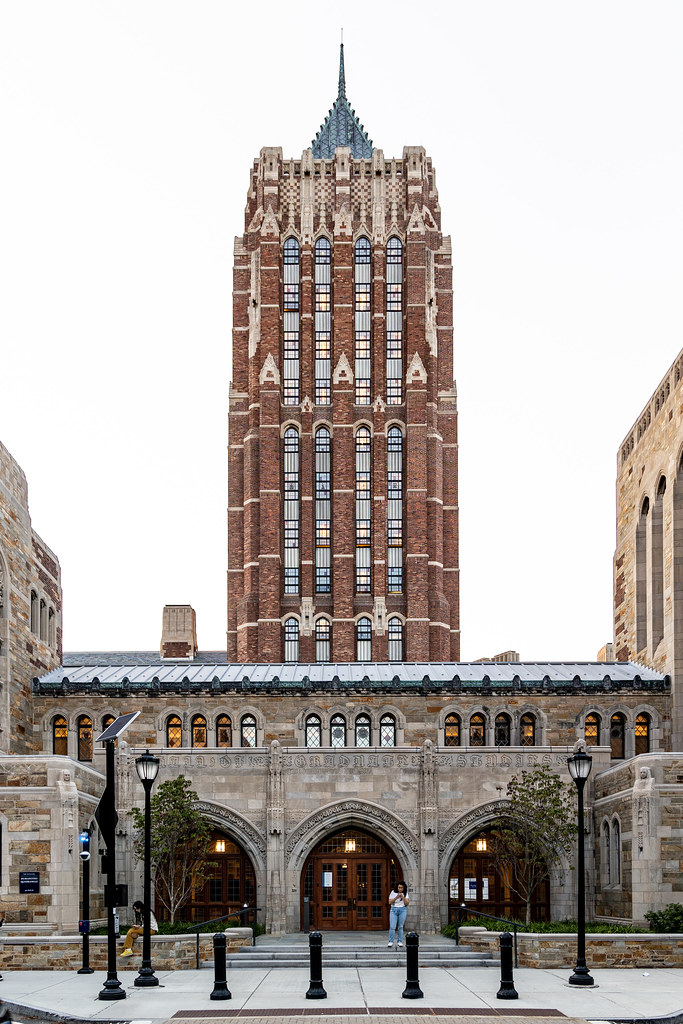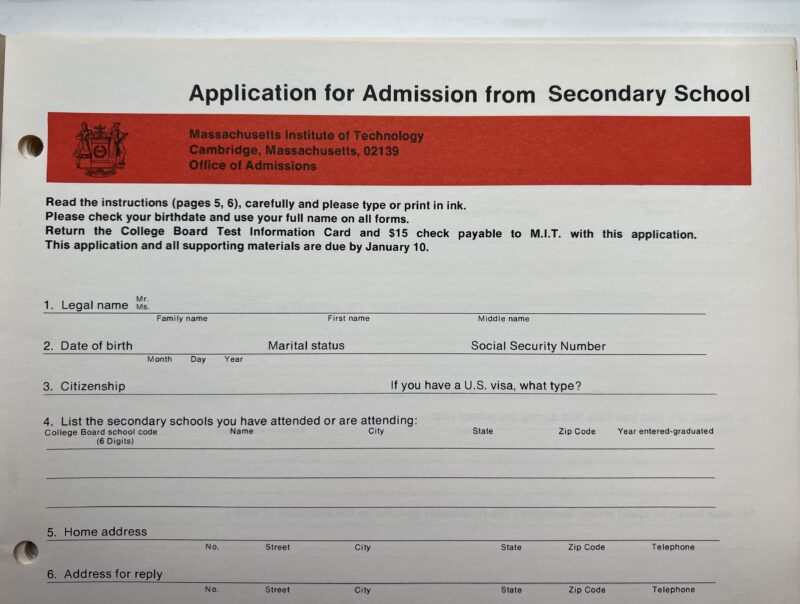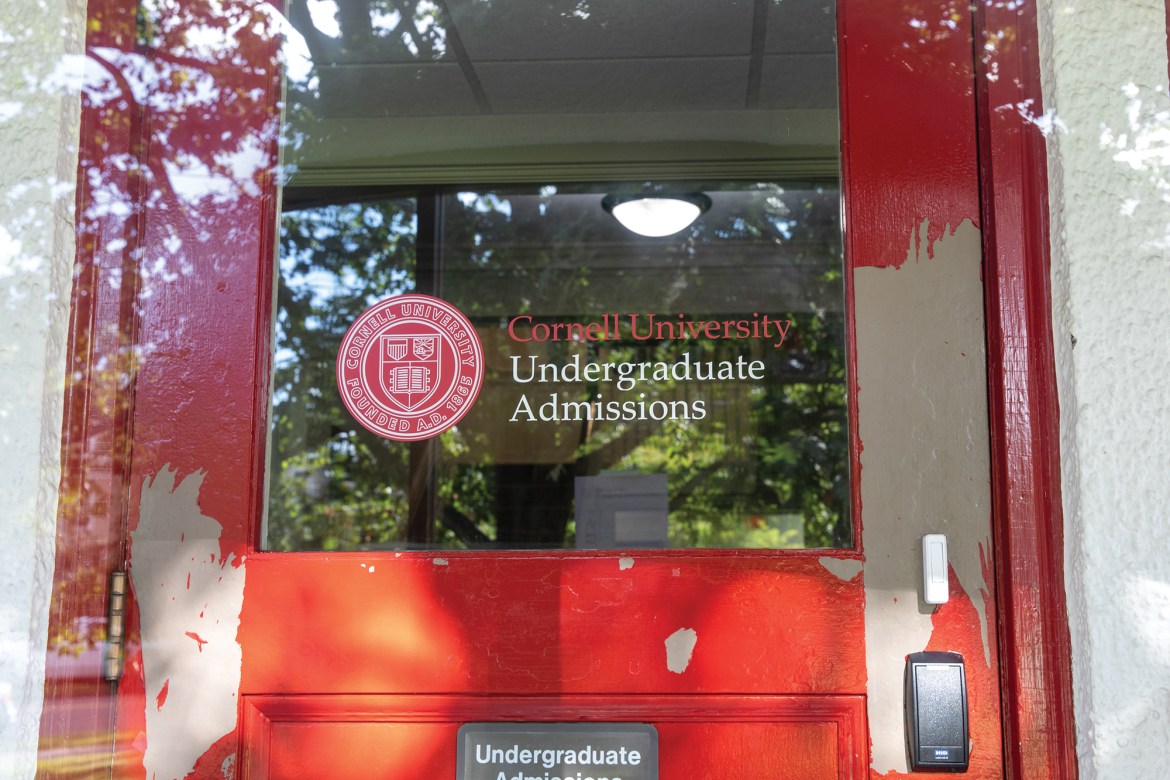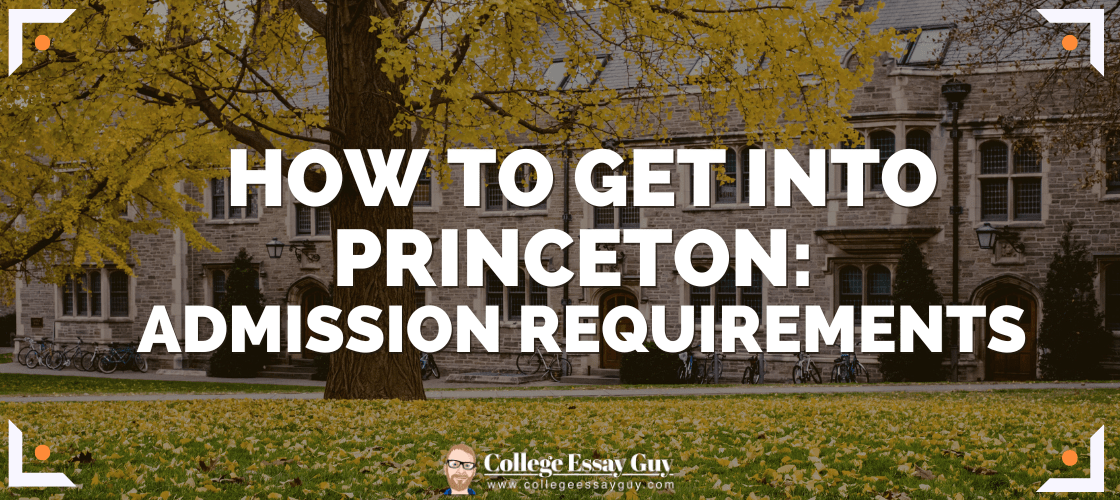Key Takeaways
Yale University assesses applicants through a holistic review process, considering both academic prowess and personal qualities.
Applying Early Action can increase your chances of acceptance, but it’s essential to weigh this against the non-binding nature of the decision.
Academic excellence and impactful extracurricular activities are key components of a successful Yale application.
Your essays and letters of recommendation are vital opportunities to showcase your unique story and the support of your mentors.
Ensure every part of your application is polished and complete before submission, and know what to expect after you’ve applied.

“Hall of Graduate Studies, Yale …” from www.flickr.com and used with no modifications.
Begin Your Quest: Yale Awaits
Embarking on the Yale application journey is an exhilarating challenge. It’s a chance to join a community of scholars and leaders who will shape the future. But how do you make your application stand out? Let’s dive into the steps you need to take to navigate Yale’s application process successfully.
Yale’s Stance on Holistic Review
Yale looks beyond just grades and test scores. They’re interested in who you are as a person—your character, creativity, and potential. It’s about the whole you. So, when you’re putting together your application, think about your story, your passions, and how you’ve pursued them.
Most importantly, remember that Yale is looking for students who will contribute to their campus in meaningful ways. Whether it’s through leadership, community service, or artistic talent, show them how you’ll add to the Yale community.
Early Action vs Regular Decision Paths
When applying to Yale, you have two choices: Early Action or Regular Decision. Early Action is non-binding and gives you the chance to show your strong interest in Yale. If you’re set on Yale and your application is ready, go for it! But if you need more time to polish your application or want to compare offers, Regular Decision might be the better path for you.
Therefore, think carefully about which option aligns best with your circumstances and college application strategy.
Understanding Yale’s Candidacy Requirements
Academic Expectations
Yale expects you to excel in challenging courses. This means you should aim to be at the top of your class and take advanced classes when available. They want to see that you’ve pushed yourself academically and are prepared for the rigor of their courses.
But Yale also understands that everyone’s high school experience is different. If you haven’t had access to many advanced courses, don’t worry. Just make sure to excel in the ones available to you and consider taking online courses or community college classes to demonstrate your commitment to learning.
Extracurricular Activities and Impact
Extracurriculars are your chance to show Yale what you’re passionate about outside the classroom. Yale values impact and leadership, so they’re looking for activities where you’ve made a significant contribution or taken on a leadership role.
Whether you’re an athlete, artist, volunteer, or entrepreneur, it’s the depth of your involvement and the impact you’ve made that count. Quality over quantity is the key here.
Creating a Standout Yale Application
Essays: Crafting Your Narrative
Your essays are where you get to tell your story in your own voice. Yale requires several short answers and a couple of essays, and this is your opportunity to shine. Be authentic, be reflective, and most importantly, be you. Show Yale how you think and what matters to you.
For example, one of Yale’s essay prompts might ask about an issue that’s important to you. This is a chance to share your thoughts on a topic you’re passionate about and to show how you engage with the world around you.
When writing about climate change, instead of simply stating it’s a critical issue, share a story about how you led a recycling initiative at your school and the impact it had on your community.
And remember, your essays should reflect the same level of excellence as your academic record. So, take your time to draft, revise, and polish them until they truly represent the best of who you are.
Let’s take a pause here, but we’re just getting started. In the next section, we’ll continue with more insider tips on securing strong letters of recommendation and perfecting your application before submission. Stay tuned!
Letters of Recommendation: Securing Strong Voices
Letters of recommendation are your personal endorsements from those who know you well. Yale requires letters from two teachers and one counselor. Choose recommenders who have witnessed your growth and can speak to your character, achievements, and potential. It’s not just about picking the teachers who gave you the best grades; it’s about finding those who can tell Yale what makes you different from your peers.
Give your recommenders plenty of time—ask them weeks in advance. Provide them with a resume or list of accomplishments, classes, and extracurriculars to help them write a detailed letter. Most importantly, don’t forget to thank them for their support!
The Submission Checklist
Application Components Rundown
Before you submit your application, go through this checklist to ensure you’re not missing anything:
Last-Minute Tips Before Hitting ‘Submit’
As the submission deadline approaches, here are some last-minute tips:
Proofread your application multiple times and have someone else review it too.
Verify that all sections are completed accurately—names of schools, extracurriculars, etc.
Ensure your essays are within the word limit and free of typos or grammatical errors.
Check that your recommenders have submitted their letters.
Take a deep breath, and when you’re ready, hit that ‘Submit’ button with confidence.
After the Submission: What Comes Next?
Once your application is in, it’s time to shift your focus. While the decision is out of your hands now, there’s still plenty to do. For insights on the Yale transfer application process, check out our detailed guide.
Interviews: Showing Your True Self
If you’re offered an interview, it’s a fantastic opportunity to make a personal connection with someone from the Yale community. Treat it as a conversation rather than an interrogation. Be prepared to discuss your interests, experiences, and why Yale is the right fit for you. Be curious, ask thoughtful questions, and most importantly, be yourself.
Staying Informed and Patiently Waiting
After your application is submitted, keep an eye on your email and Yale’s portal for updates. If there are any additional steps or information needed, respond promptly. Other than that, stay patient. It’s a waiting game, but you’ve done your part.
Remember, no matter the outcome, applying to Yale is a journey of self-discovery and growth. It’s an experience that will prepare you for future opportunities and challenges.
Stay positive, and use this time to keep up with your schoolwork, continue your extra-curriculars, and plan for your next steps after high school. Whatever happens, know that you’ve put your best foot forward.
And that’s a wrap on part two of our guide to navigating Yale’s application process. In the final part, we’ll tackle frequently asked questions and provide additional insights to help you along this exciting path. Keep your eyes peeled for more expert advice!
FAQs
What Is Yale Looking for in an Applicant?
Yale seeks individuals who demonstrate academic excellence, intellectual curiosity, and a commitment to their community. They value students who have challenged themselves in high school and have taken advantage of the opportunities available to them. Yale also appreciates applicants who bring diverse perspectives and experiences to their campus, enriching the university’s tapestry of cultures and ideas.
How to Choose Between Early Action and Regular Decision?
Choosing between Early Action and Regular Decision at Yale depends on your readiness and confidence in your application. If Yale is your first choice and your application is strong in the fall, Early Action can show your enthusiasm and potentially give you an edge. However, if you need more time to improve your application or test scores, or if you want the flexibility to compare financial aid offers, then Regular Decision may be the better route for you.
Keep in mind that Early Action at Yale is non-binding, which means you are not committed to attend if accepted. This allows you some leeway to explore other options before making your final decision.
What Are Common Mistakes to Avoid in Yale’s Application?
One common mistake is not thoroughly proofreading the application, which can lead to typos and errors that detract from the overall impression. Another misstep is failing to fully answer the essay prompts or writing essays that lack a personal touch. Remember, Yale wants to get to know you through your application, so make sure your personality shines through.
Additionally, overlooking the importance of recommendation letters can be detrimental. Choose recommenders who truly know you and can speak to your strengths and potential. Lastly, make sure to accurately report all activities and honors, as inconsistencies can raise red flags for admissions officers.
For example, if you’ve led a community service project, don’t just list it as an activity. Explain your role, the impact of the project, and how it shaped you.
And, of course, waiting until the last minute to submit your application can lead to unnecessary stress and mistakes. Start early to give yourself ample time to create a thoughtful and polished application.
Can You Apply to Yale Without Test Scores?
Yes, Yale has adopted a test-optional policy for the current admissions cycle. This means that SAT and ACT scores are not required for admission. However, if you have taken these tests and believe your scores reflect your academic abilities, you are encouraged to submit them. The choice is yours, and Yale assures applicants that those who do not submit test scores will not be at a disadvantage.
How to Approach Yale’s Supplemental Essays?
Yale’s supplemental essays are your chance to speak directly to the admissions committee. Approach these essays with a strategy in mind:
Be Reflective: Use the essays to reflect on your experiences and how they’ve shaped you.
Show Personality: Let your voice and personality come through in your writing.
Be Specific: Use specific examples and stories to illustrate your points.
Research: Show that you’ve done your homework about Yale and how you see yourself fitting into their community.
Take the time to craft thoughtful responses that convey your enthusiasm for Yale and your readiness to contribute to their vibrant academic and social community. And remember, authenticity is key—don’t tell them what you think they want to hear, tell them who you truly are.
By following these guidelines and putting in the necessary effort, you’ll be able to submit an application that truly represents your potential to contribute to the Yale community. Good luck!





